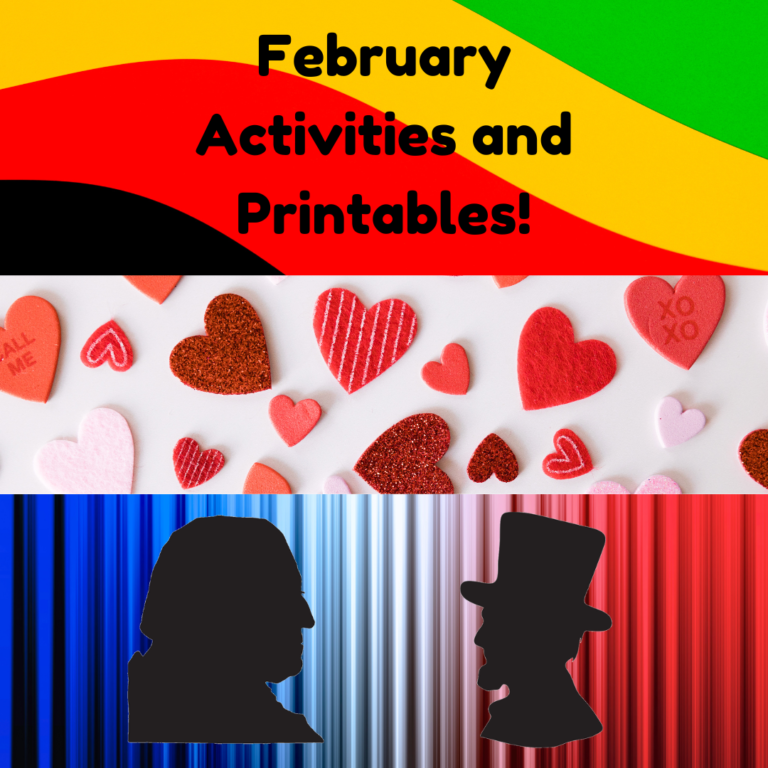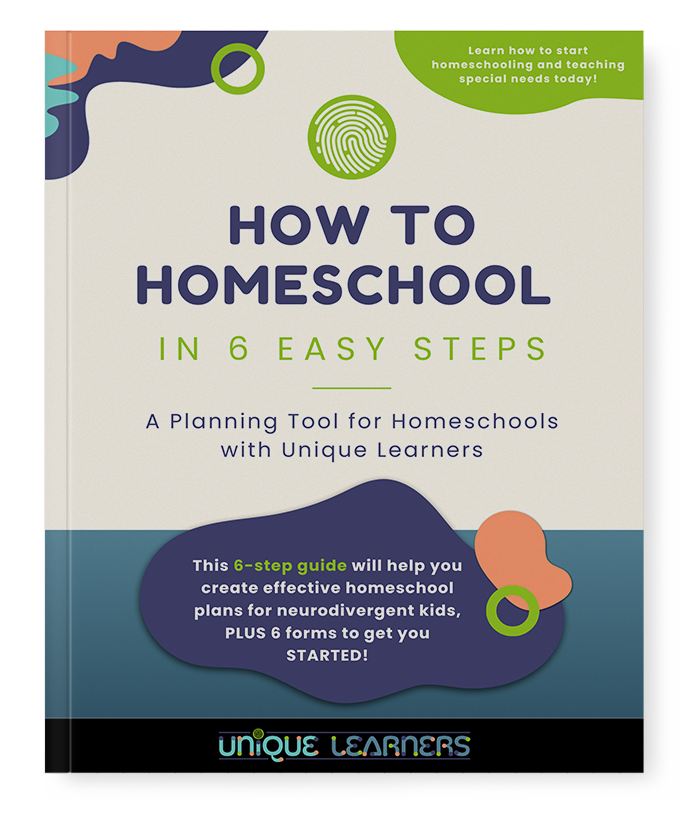For those of you who have followed our blog for awhile, you know that I typically write about how learning happens in homeschools. I guess that’s to be expected since I’m a veteran homeschool mom and a PhD level learning specialist. The things I love are: Jesus, my husband, my kids and grandbaby, my students, and my church family, and my pets – all in that order. LOL!
A very important issue to keep in mind about how learning happens is to make things fun, novel, weird, or exciting in some way to capture a child’s attention. Enthusiasm and curiosity are attitudes that are caught! The more you make things fun and exciting, the more your older kids with special needs will become inspired to explore topics of interest. It’s ok to do random activities once in awhile that are based in history, science, daily life skills, or social life.
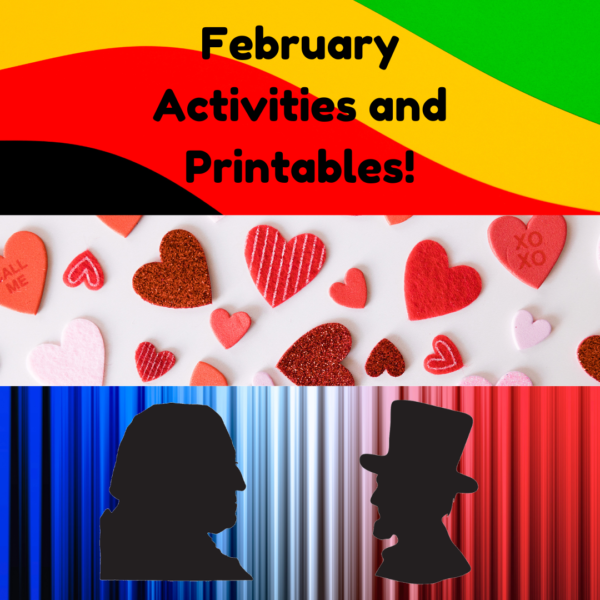
We are still working on developing homeschool curriculum for special needs learners. It takes a long time to develop curriculum, so we will continue to release new folder games and multisensory activities in 2024. As a team, we’ve decided to also incorporate fun activities for each month that you can use to make learning light, easy, and just plain fun for learning. Be sure to download the FREE activities calendar. You don’t have to do it all. Just taking 1 activity or one a week will help to make a change for your family and learning!
Click HERE to download our FREE February Activities calendar and loads of printable worksheets and coloring pages!
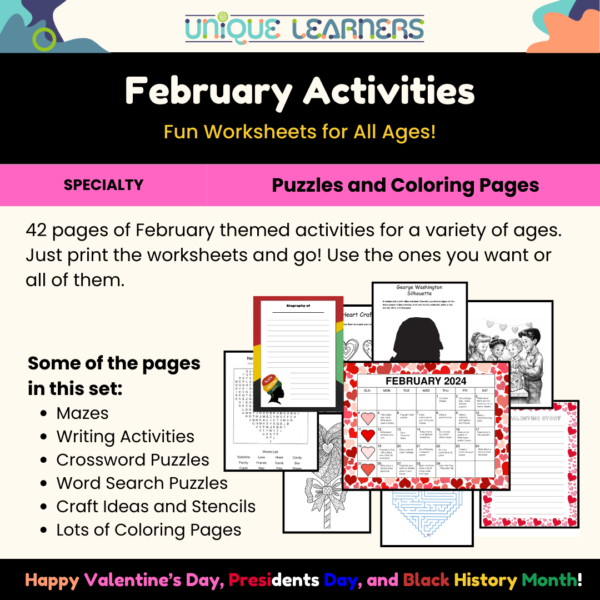
- Black History Month: Dedicate time to learning about important figures and events in Black history. Watch documentaries, read books, and discuss the impact of these individuals and movements.
- February Coloring Pages: You will find a bunch of coloring pages in our FREE February Activities packet. Why coloring? Because you can use a variety of implements from soft oil pastels, smeary artist chalks, crayons, colored pencils, markers, or watercolor paints! All of these will help with fine motor skills and build hand and arm muscles most associated with handwriting without doing handwriting practice!
- Valentine’s Day Crafts or Puzzles: Get creative with Valentine’s Day themed arts and crafts. You can make handmade cards, decorate heart-shaped cookies, or create DIY decorations for the house. We have mazes and puzzles that you can do together to teach your kids visual processing skills in the free calendar file!
- Winter Nature Walk: Take advantage of the winter scenery and go for a nature walk. Look for animal tracks, study snowflakes, and observe how plants and animals adapt to the cold.
- Presidents Day Study: Explore the history of Presidents Day and learn about influential presidents in American history. You can organize a presidential trivia game or create a visual timeline of past presidents.
- Indoor Science Experiments: Conduct fun and safe science experiments indoors. Explore concepts such as static electricity, melting points, or the science behind snow formation.
- Virtual Museum Tours: Take virtual tours of museums and art galleries around the world. Many institutions offer online resources and exhibits that can enrich your homeschool curriculum.
- Cooking and Baking: Incorporate cooking and baking lessons into your homeschooling routine. Try making seasonal recipes or exploring the science of food and nutrition.
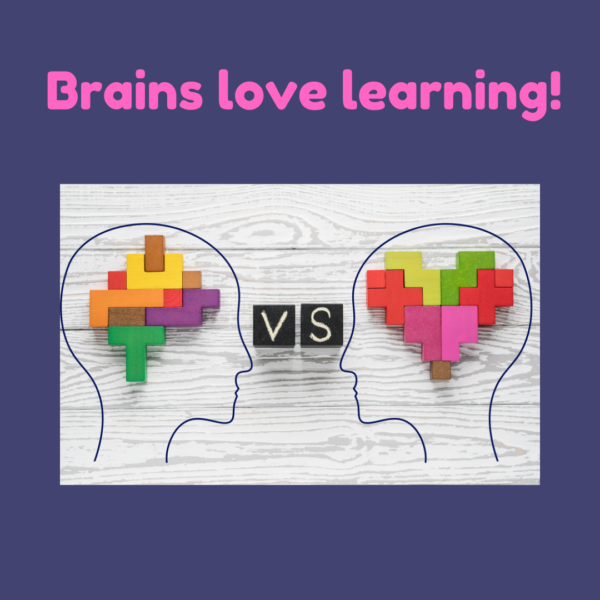
By incorporating these activities, you can bring excitement and variety to your homeschooling experience in February. And your kids will still be learning important brain-based learning skills besides having fun and exploring content outside of the normal curriculum. By the way, be sure to download our FREE February Activities Packet for more ideas and printables!
